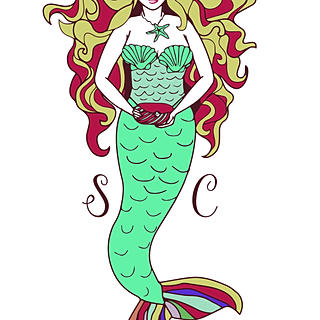Bagging Groceries Taught Me Everything I Needed to Know About Being an Executive Part 10
- Bill Holmes
- Aug 16, 2018
- 4 min read

“Talent wins games, but teamwork and intelligence wins championships.” Michael Jordan
It is not the spoon that bends, it is only yourself. Spoon Boy, The Matrix
Lesson 10: Leaders fail because they want to be liked when they need to be respected. Treat people fairly, do the right things for the right reasons, and respect will be earned over time.
My first “real” job was at Piggly Wiggly Southern®, a grocery store chain that was primarily based in Georgia in the early 80’s. This is the tenth in a series of posts describing the Executive Leadership lessons I learned in that first job.
By this time, I was 19 and decided I wanted to be a manager at Piggly Wiggly. College was on hold for the time being and management positions paid better, so I thought “why not?”? I was at a large store with a very good management team, so I tried to learn everything I could from them. Those were the days before consultants had mastered the art of teaching “leadership”, and there was no internet to look things up on. You had to learn the old-fashioned way – action and observation.
The Assistant Stock Manager (ASM) was an energetic young man that I had known for years. We grew up in the same neighborhood and had been Boy Scouts together, and he was really a great guy. The Stock Manager was a big man named Raymond, and he couldn’t have been more different. While the ASM was easygoing, Raymond was incredibly intense! He drove the crew and jumped right in to lead by example when the truck showed up to be unloaded. He always grabbed the heaviest pallet and got it off the truck and pitched in whenever someone fell behind.
The ASM led one stock session a week. While we all did our jobs, it was a pretty relaxed environment and there really wasn’t much of a sense of urgency. That was a direct result of his management style. He was a hardcore “company man” who read the rule book and interpreted every policy as a black line to never be crossed, which sometimes had a negative impact in the “real world”. For example, if you worked very hard and got done early, your reward was that you were sent home resulting in less pay! On the other hand, he was very polite and cordial, and anytime anyone fell behind he was right there to jump in and help them finish. If someone made a mistake, he patiently helped them work through it and made sure they understood what they did wrong. He was patient, kind and supportive.
And the crew took advantage of that!
By contrast, Raymond was focused on the output and was very aggressive. He expected you to get your job done quickly and efficiently, and if you didn’t he was right there in your face asking why. He wouldn’t dream of helping you with your work. That was your job! He would focus on building the display at the front of the store and would occasionally walk around to make sure everyone was getting their job done. While he was aggressive, he wasn’t a jerk about it. I can still remember him walking down the aisles hurling good natured insults at everyone about how slow they were.
“Good grief, I thought you were stocking molasses, not standing in it – get moving!”
“Good thing you are stocking the tissues with all that crying and whining about the work -get moving!”
“Good grief Holmes, if you were any slower you would be moving backwards!”
We all moved quicker when Raymond was in the store. He was demanding, but he also worked as hard or harder than we did. He had incredibly high standards and took great pride in his own work. If we were behind schedule, he drove us hard the entire night until we were done. If we were ahead of schedule, he would occasionally say over the store intecom: “The Deli cooked too much chicken and we broke a case of coke. Dinner is on Piggly Wiggly tonight – everyone come up front!” And we would eat dinner together on the clock. He understood the give and take of leadership. Treat people well but demand their best and don’t take any crap!
I had not yet read Machiavelli’s “The Prince”, but the concept of “was it better to be loved or feared” was one that I resolved early on in my career. It is better to be respected, and with respect comes a healthy dose of fear and a little bit of love.
Coda
Do facts matter anymore? I have written several posts where I discuss the Enlightenment Period where we began to apply history and common sense to day to day problems like government. This was a fact based analysis. I am concerned that emotion and feelings are supplanting facts when decisions are made, and that can only have a bad outcome. It is also interesting that it is becoming harder to even present facts that challenge someone’s set orthodoxy, and if you do you are greeted with raw emotion rather than a spirited discussion. What a shame if we step back from the enlightenment and go back to a world where the loudest voice always wins.









Comments